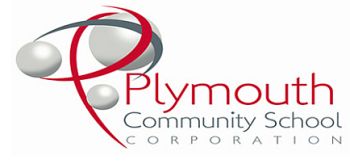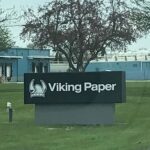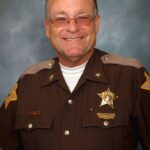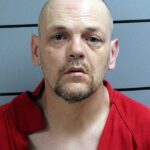 06/19/13 Keeping track of some 3, 750 technology units (computers and I Pads combined) hasn’t been easy for the Plymouth Schools, but administrators find it well worth the time and expense to make sure students are gaining 21st Century skills. Every student in the school corporation plus many staff members had a designated device to use throughout the school year.
06/19/13 Keeping track of some 3, 750 technology units (computers and I Pads combined) hasn’t been easy for the Plymouth Schools, but administrators find it well worth the time and expense to make sure students are gaining 21st Century skills. Every student in the school corporation plus many staff members had a designated device to use throughout the school year.
The 2012-2013 school year marked the third year that Lincoln Junior High students had assigned individual computers. At the end of the upcoming school year, 2013-2014, the leased Mac computers at the junior high will be owned by the corporation. Assistant Superintendent Dan Funston said they will be looking at future needs and at a number of options of what to do with them. He said, “We owe it to our taxpayers and community to do due diligence and look at everything.” He said they originally chose Mac computers because they maintain their value. “We will be discussing whether to keep Mac computers or switch with our teachers.” he said.
A few students and teachers have been using other devices throughout the school year to determine if they hold up and can be used effectively, according to Funston. Students at Plymouth High School have had access for the past three years, Riverside Intermediate for two years, and the four elementary schools, one year to have 1:1 devices.
Funston said the Accessible Use Policy (AUP) can be found on the school corporation’s website. He acknowledged that procedures at PHS did cause some confusion at the end of the school year and a few parents received billing for repairs that were incorrect. Funston said, “We waited until the last minute to have students turn in computers in at PHS and then the technology staff or administrators didn’t have an opportunity to talk to students about damages.” The AUP states that first offense damage may result in a fee of up to $100. He said, “If we find that the damage is only a key (cap) that is missing, we only charge the repair costs; but if, for instance, the mechanism below the key is broken, the fee could be $100.” According to Funston, students are supposed to report any damages to the Media Center personnel as soon as it is discovered; but obviously that didn‘t happen in all cases.
Funston said after the first year of having leased computers, they decided not to purchase insurance from Apple. He said, “Our repair costs are now significantly below the cost of insurance.” The Technology Department has a dedicated technician who is Apple certified to make repairs on the school’s computers. He said, “Parents have asked if they can get a computer fixed on their own; however, that would void our warranty.” He added, “Parents can purchase insurance themselves. We didn’t offer it since we didn’t want to be in the position of promoting any one company.”
According to Funston, only a few parents requested that their child not take a computer home. He said, “Students can leave their computers on a cart at school at a parent’s request.” Funston said students can use a computer that is in the home as well to complete assignments since most of the assignments are web-based. Funston said there are few instances where a student may be required leave a computer at school due to abuse problems, but the computers are in the library to pick up to use.
Costs of repairs on computers differ from school to school. As an example, Technology Director Bruce Johnson said the types of cases used at PHS are different than those at other schools. He said, “PHS has aluminum cases while others have plastic cases.” Johnson indicated that accidental damage can be costly. He said, “Spilling Kool-aide, for instance, can take $800 worth of repairs.” He said the most common types of damage are keys that are popped off and liquid spills.
Both Funston and Johnson see the advantages of issuing devices on a 1:1 basis. Johnson said, “It increases accountability and students take ownership seriously.” Funston said, “If we had computers on carts that are used by more than one student, how we would know who damaged them?”
Johnson said that there are only a small percentage of the computers that have been damaged. He said, “There were 3, 400 units with no usage problems.” Funston said, “It’s the same as when we have students who write in textbooks or other damages.”
Funston said it’s difficult to say how technology has increased student learning. “The computer is only a tool for learning. The teachers facilitate how the computers are used.” he said. He said he feels that the computers have made teaching more effective because teachers can keep track of student’s progress.” Funston said there has been a tremendous increase in both the graduation rate and test scores.’ He added, “We are a lot more than test scores.”
Funston said they have had a number of comments from PHS graduates who went on the college. He said, “They don’t have to learn how to use the computers since they already know how to speak “computer language” and use soft skills.”
Funston said, “We are ahead of the game. “ During a conference in Plymouth on Monday, Glenda Ritz, superintendent of public instruction, indicated that the state would be using benchmarks in the future and may require 1:1 computers.
Carol Anders Correspondent














